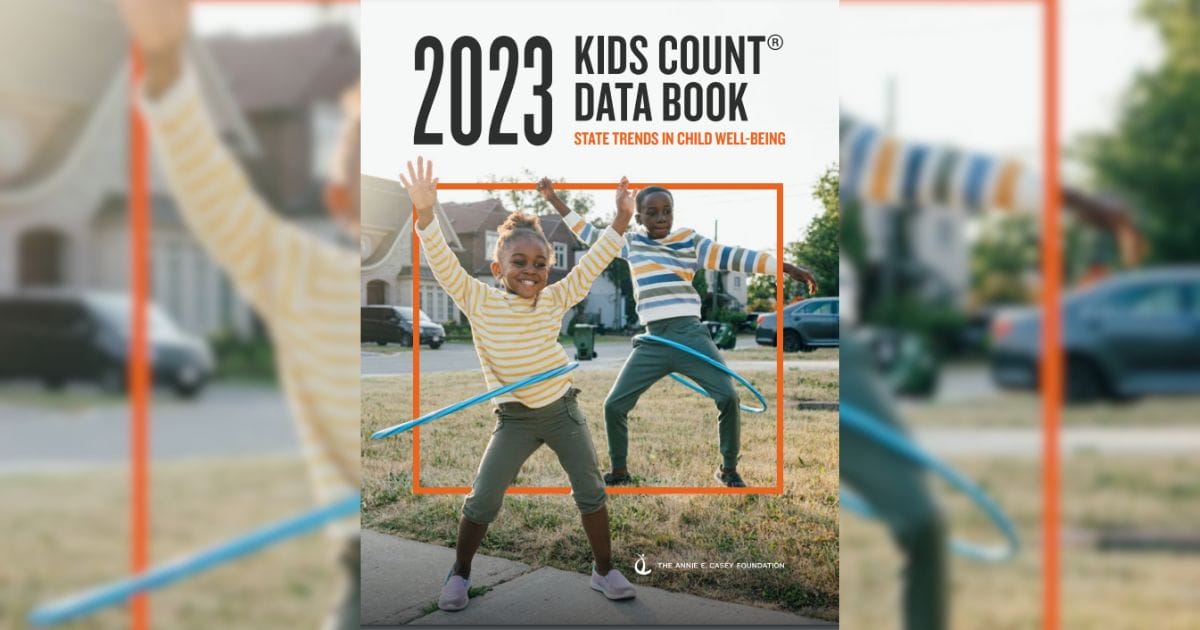Illinois ranks eighth in education, according to the 2023 KIDS COUNT® Data Book, a 50-state report of recent household data developed by the Annie E. Casey Foundation analyzing how children and families are faring. However, our country’s lack of affordable and accessible child care short-changes children and causes parents in Illinois to frequently miss work or even quit their jobs, while those who can find care are paying dearly for it. These child care challenges cost the American economy billions of dollars a year and stymie women professionally.
Illinois ranks 19th among the states in the 2023 Data Book. Across the four key areas measured for this year’s Data Book, Illinois ranked 23rd in economic well-being, 8th in education, 23rd in health, and 26th in family and community. As presented in Illinois’ 2023 KIDS COUNT data dashboard, 16% of Illinois children overall are living in poverty, with Black children twice as likely to live in poverty compared to the state average. And among households with children, 28% have high housing cost burdens, with Black and Latinx households experiencing high housing costs at higher rates—46% and 35%, respectively.
“The 2023 Data Book underscores the importance of lawmakers centering equity in policies and programs to ensure all Illinois children and families have the resources they need to thrive,” said Dr. Katelyn Jones, vice president of policy, research, and evaluation at YWCA Metropolitan Chicago, the Illinois member of the KIDS COUNT network. “Illinois continues to be a leader in early education, but we can still do more. The state has an opportunity to alleviate long-standing systemic inequities by creating policies and programs that will increase equity across economic, educational, and health indicators.”
The Data Book reports too many parents cannot secure child care that is compatible with work schedules and commutes. The Data Book reports that in 2020-21, 15% of Illinois children under age 6 lived in families in which someone quit, changed, or refused a job because of problems with child care. And women are five to eight times more likely than men to experience negative employment consequences related to caregiving.
Even if parents can find a child care opening near their home, they often can’t pay for it. Illinois’ average cost of center-based child care for a toddler was $12,470, 11% of the median income of a married couple and 37% of a single mother’s income in the state.
While the cost of care burdens families, child care workers are paid less than 98% of professions. Median national pay for child care workers was $28,520 per year or $13.71 an hour in 2022, less than the wage for retail ($14.26) and customer service ($18.16) workers.
The failings of the child care market also affect the current and future health of the American economy, costing $122 billion a year in lost earnings, productivity and tax revenue, according to one study. And Illinois in particular loses $4.9 billion a year. All of these challenges put parents under tremendous stress to meet the dual responsibilities of providing for their families and ensuring their children are safe and nurtured.
Each year, the Data Book presents national and state data from 16 indicators in four domains — economic well-being, education, health, and family and community factors — and ranks the states according to how children are faring overall.
“A good child care system is essential for kids to thrive and our economy to prosper. But our current approach fails kids, parents, and child care workers by every measure,” said Lisa Hamilton, president and CEO of the Annie E. Casey Foundation. “Without safe child care they can afford and get to, working parents face impossible choices, affecting not only their families, but their employers as well.”
Transitioning from a faltering child care system to creating a flourishing one will take new thinking and investing at the local, state, and national levels. An executive order issued by President Biden in April is aimed at expanding access, lowering costs, and raising wages. It could prove to be a helpful framework, but more is needed:
- Federal, state, and local governments should invest more in child care. State and local governments should maximize remaining pandemic recovery act dollars to fund needed child care services and capacity. Congress should reauthorize and strengthen the Child Care and Development Block Grant Act, and increase funding for public pre-kindergarten and Head Start.
- Public and private leaders should work together to improve the infrastructure for home-based child care, beginning by lowering the barriers to entry for potential providers by increasing access to start-up and expansion capital.
- To help young parents, Congress should expand the federal Child Care Access Means Parents in School (CCAMPIS) program, which serves student parents.
As the Illinois member of the KIDS COUNT network, YWCA Metropolitan Chicago is releasing the state data dashboard for Illinois alongside the national data book. The dashboard provides a comprehensive overview of data about Illinois children and families at state, regional, and county levels. It is available at: https://bit.ly/KIDSCOUNTIL.






